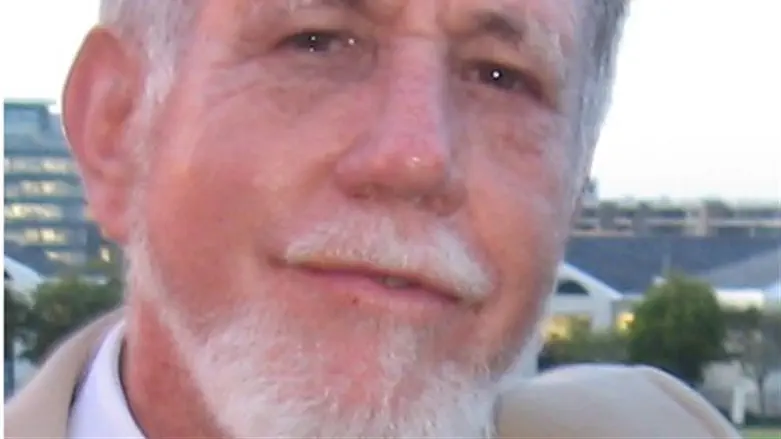
After Moses refigured his life, making it unfamiliar to him, he feels compelled to put it right. Either that or allow commentators to fill his acts with their fantasies, fears and desires. Some say he couldn’t take fame; others that he was born corrupt. Drunkards jest with his name in dank taverns: BbB for Balaam ben Beor. It is said the soul the Lord gave him had been that of Laban his grandfather the schemer who deceived his way to infamy. Israelites picture him with one eye, a crippled leg and a crooked soul.
It is said he knows by heart the commandments in Hebrew, that as a minion of Satan he’s ready with a text if sages flounder. His manner is haughty; he is at home in a royal palace or a rowdy inn, in Baal-peor temple or bawdy-house. He can draft a spell, shoe a pony, draw a battle plan, speak with God, curse a man, dispute with sages and dally with maidens. He will quote a nice point from Hebraic mysticism and argue it in one of seven tongues. He works all hours, makes money and squanders it as quickly. He will take a commission from anyone with gold.
Today he’s with Balak ben Tzippor. A diviner in his own right, the king applies bird magic. He’s had a fright. Instead of the metal contraption speaking with an implanted quail’s tongue, it spread its wings and flapped into the blue horizon. It did return, though not after forty days like the dove to the ark. The oracle bird came back in two hours and a half, led by a flaming arrow. When the king touched the tail he got his fingers burnt. What did it all mean? ‘The time and the burn bother me,’ he says to Balaam.
Interpreting the event presents no problem; Balaam was expecting a bad omen. His scouts dispatch reports from wherever the tribes camp or journey in the wilderness. The bird’s return time stands for the number of days before the tribes reach the plains of Moab. The king is a patron who demands attendance day or night. A rumor or a whisper or the scuttle of a rodent in the wainscot can upset him. He, a Midianite, fought his way to an unlikely throne. He got to be king of Moab by bloodshed. Live by the sword, die by it. So Balak never stops suspecting plots. The throne has not brought him anticipated glory. Daily he anticipates a fight he will lose.
‘Four wizards at my court gave four meanings. But you scowl. Balaam, is it that bad?’
‘Your Grace, on no account dispatch your army. It cannot prevail against the Israelites. Your battalions will flee like the bird, singed and broken.’
Balak stares at a plate of candied quinces, too coarsely cut. Balaam sips from a glass of very good wine. The flames of the wax candles bow to the king, and stand straight again.
The Israelites he, Balaam says, will not be warlike. Not before they cross nto Canaan. They’re not bent on conquest. War is the last thing that concerns the tribes. They indeed are doomed to wander in the wilderness because of a fear of war. God who took them out of Egypt gave their men of military age a death sentence lasting forty years. Every year 15,000 dig their graves and lie down in them. A people who can do such a thing won’t come after a king and his country. The generation of the spies is learning a deadly lesson from which your Grace can take comfort. Leave the Israelites be. They are destined to make war on Canaanites.’
The king says, ‘Really,’ as if in bright sunlight. His face in the gloom says, ‘can I trust you?’ The butler is summoned. Boys in livery shuffle under trays of food. The fire crackles. A burnt log subsides. The king, wrapped in worry, rises and personally kicks it.
‘I gather,’ he says, ‘you visit the encampments.’
‘More than that. Your Grace may have heard, I’ve met with Moses.’
‘Yes you have. Now why would you do that?’ He screws his mouth into the shape of a scimitar.
‘What if I told you that he’s composing some passages about me? I don’t mean the passages he took down from God on Sinai.’ I mean a book on me by Moses himself.
‘Ah, Balaam, you never stop self-promoting. What is it? Your fame is not sufficient that you have to crown it with a tiara?’
He can’t help a broad smile. ‘Your Grace, don’t believe me. Ask his councilors who compile the Oral tradition. In time it will appear in a great volume they refer to as ‘Talmud.’ In it scholars will read a line in Bava Batra, 14b-16b:
משה כתב ספרו ופרשת בלעם ואיוב
It means, Moses wrote his book; and the passage of Balaam; and the book of Job.’ That’s three books he’s writing. One of them is on me.’
They sit and think. It’s sad, they both know it’s sad that a personal compilation by Moses will be lost in the travails of exile. Who shall verify Balaam’s account? There will be scholars who’ll say his account is a lie; but a thing isn’t necessarily a lie even if it didn’t necessarily happen. Yet is it not significant that even in the passage of his book of laws and commandments from Sinai, Moses keeps Balaam front of stage. The Israelites are basically off stage. They are bystanders while he, Balaam, does things to them and for them.
He deserves it. “No prophet arose in Israel like Moses.” True; but one did arise outside of Israel. The prophecies he and Moses utter are on their own. Other prophets open their oracles with words to the effect, “So says God.” They interpret God’s word. Balaam and Moses hardly prophesize. God speaks through their mouths. They express His direct, unmodified word. Not for nothing his donkey talks if God can talk through Balaam.
There’s one power even Moses lacks. Balaam's one eye can scrutinize better than any two good eyes. It looks for flaws in people and finds them. Moral lapses in character are his stock in trade. His curses work because the cursed are already vulnerable through their sins. Evil doing leaves a man open to mishaps. As long as the evil remains unexposed the Heavenly Court exercises tolerance. He manipulates this by alerting it to some vulnerability in his victim. He then sits back to let the court do the rest. Without help from God he’s impotent. “How can I curse?’ he will plead to the king when the time comes. “God has not cursed. How can I anger? The Lord is not angry.”
But the anger is both ways. God gets angry with Balaam, for obeying or not obeying Him. Balaam gets angry with God, for permitting him to curse but then forbidding it. How could he not feel bitter when he’s a mere dummy of the ventriloquist in heaven who opens his lips and talks through them. What say in the matter is he allowed? Born to be a villain – where’s the free will others get by Divine right?
Can it be wondered why the commentators are torn between recognizing him as a great prophet and denigrating him for descending from the wrong side of the family? He always wanted Abraham for a patriarch. Instead he drew Lot the nephew, the drunk, the lustful father of scheming daughters.
He curtsies to leave, says, ‘If you want to nullify the Israelite threat, don’t go to war, go to their God. I know how to anger Him against them.
‘God be with you, Balaam.’
Steve Apfel is an economist and costing specialist, but most of all a prolific author of fiction and non-fiction. His blog, ‘Balaam’s curse’ https://enemiesofzion.wordpress.com/ is followed in Europe, America, Canada, S. Africa, Israel, Australia, Scandinavia and New Zealand.
